
Explore the top rated Midland drug rehabs with confidence. We've analyzed each of the 25 addiction treatment centers in Midland, TX for patient reviews, clinical credentials, transparency, and brand reputation to identify the best rehab programs.
Filter by inpatient, outpatient, detox, health insurance, specialty program and more to quickly find the best drug and alcohol rehab in Midland.Our Methodology
Rehab Score
Our Rehab Score is designed to make it easier for you to find the best treatment centers. We combine overall ratings with recent feedback to create a score that reflects a center's quality right now.
.
| Name / Address / Rating | Description | Treatments / Programs / Payment Options | Review / Contact | Images |
|---|---|---|---|---|
Midland, TX | Residential treatment helps bolster recovery by removing clients from the stress of their daily lives and placing them in a supportive and sober environment. Services at Teen Challenge’s Midland program include individual and group counseling, classes in coping skills, problem-solving, communication, and other life skills, help securing employmen | Treatments Programs Payment Options | Teen Challenge helped to save my life! I left healed and whole. Grace abounds there. Mrs. Yvonne allows the Holy Spirit to work through her. I am forever grateful for this program. No longer am I alone or condemned. I have an intimate relationship with the Lord and a greater understanding of community. Thank you!
haley darby
2 years ago
Absolutely love this place! Going to Teen Challenge has completely changes my life through the power of Jesus Christ. 4 years clean and its all because Teen Challenge introduced me to Christ! Truly this program is fully committed to the ministry of reconciling the world back to the living God!
Armando Molina-Tapia
3 years ago
Through Jesus Christ and this ministry saved my life, thankful to be were I am at in my life and serving through this ministry 🙂👍 I truly recommend this place 100% to anyone who is or wanting a better life.
Trent Varner
3 years ago
| |
Midland, TX | AlAnon Family Serenity Group is a community-based substance abuse support program for those who have friends and family members living with drug and alcohol addiction. They provide clients with peer support and 12 Step style group services. You'll find 'em in Midland, Texas. Peer support programs like Al Anon are designed by clients for clients. A | Treatments Programs | Beautiful facility
Deb Rodriguez
2 years ago
Positive atmosphere
Mikey Gillis
5 years ago
A qué hora son sus reuniones ? 😇
ivan Magallanes
5 years ago
| |
Midland, TX | Behavioral Health and Family Services is located in Lewisville, Texas. It’s a mental and medical healthcare center that provides an intensive outpatient program for those trying to overcome substance abuse addiction. This facility treats children, teens, and adults, including those with co-occurring disorders. Like other drug rehab centers, the | Treatments Programs Payment Options | I stayed in the adolescent unit for ten days and it actually helped me for the most part.Yeah there were days were I got triggered really bad but I think in the end that helped prepare me. Plus the techs ( April, Kamille and Portchia especially) were really helpful.
Sephira Gutierrez
2 months ago
I miss yallllll April if you see this I love uouuuu
Ivy CHRISTENSEN
5 months ago
The staff here are absolutely amazing. We were having a hard time finding a psychiatrist to see my son in a reasonable amount of time, then insurance was giving problems, these ladies were an absolute blessing. The entire staff was so helpful and reassuring. My son was seen immediately. When your kid is in crisis time is critical. They addressed his needs and prescribed meds that day. Wonderful place and staff
Teresa Jones
5 months ago
| 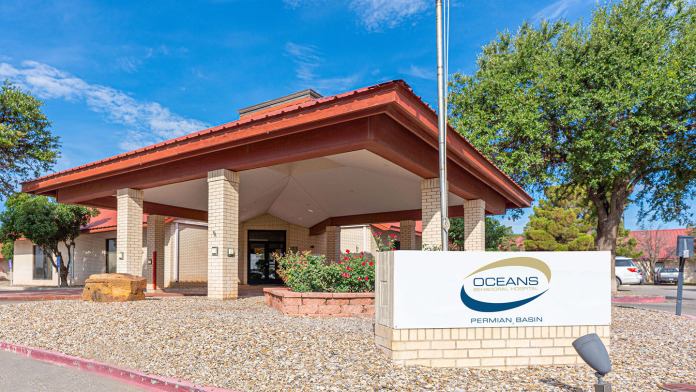
|
Midland, TX | Basin Detox Systems offers individualized drug rehab services to adult men and women who want to overcome substance abuse addiction in the Midland, Texas area. This addiction treatment service offers recovery through drug detox and an inpatient program. The Basin Detox System is located in an acute care hospital with programs offered under the care | Treatments Programs Payment Options | Not bad, not bad, I say.
Carlton Eberle (Carl)
4 years ago
Great!
Tangee Feazell
5 years ago
| |
Midland, TX | West Texas Counseling and Rehabilitation Program is located in Midland, Texas, though this organization has offices throughout the region. This facility provides comprehensive care to men and women who need support for an opioid use disorder. Through this outpatient treatment facility, you'll be supported by evidence-based practices so you ca | Treatments Programs Payment Options | Shit i like it im off dope
Carrie Farrington
7 months ago
I went to this place for 5 years before I moved to Dallas. Now 4 years later Im moving back. Thank God for this place. My sobriety is my everything. These people care about your sobriety if you do
Jasye Nichols
5 years ago
Much better than the alternative!
Michael Flynt
6 years ago
| 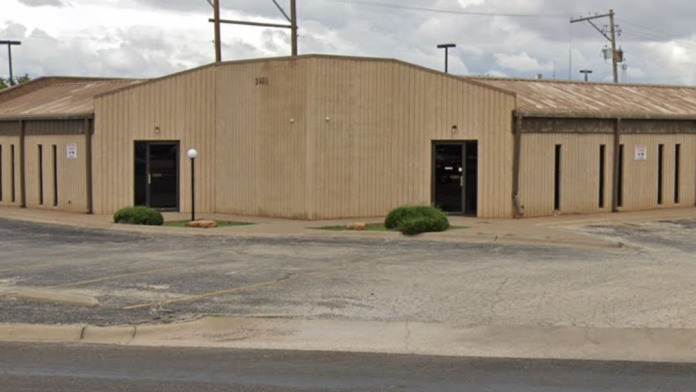
|
Midland, TX | PermiaCare – Mental Health Services offers co-occurring psychiatric and substance use disorder services in Midland, Texas. They specialize in outpatient care. Your health and well being will improve as a result of their therapeutic approach. Their group of experts will collaborate based on your requirements and preferences. Many people are eligib | Treatments Programs Payment Options | En este lugar están ayudando mucho a mi hija, realmente ha sido de mucha ayuda estoy tan agradecida con todo el personal y con todas las personas que han ayudado con donaciones para niños de Bajos recursos que Dios les pague a todo el PERSONAL de este lugar.
Maria Alvarado
3 years ago
If your here for help they will help you with your mental health needs
January McGowan
7 years ago
| 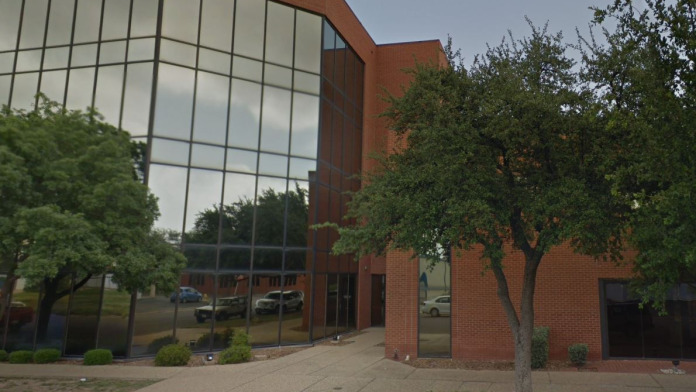
|
Odessa, TX | PermiaCare Turning Point is a premier residential drug and alcohol recovery center in Odessa, Texas. They provide adults in crisis with a comprehensive care plan rooted in the 12 steps method and cognitive behavioral therapy. They are a private facility in a residential setting with modern amenities. Clients who do not have a source of income o | Treatments Programs Payment Options | This place was clean, respectable uplifting, healing, free to those who can’t afford it. The staff was respectable given the outcome of the patients that they could help and those they could not help the counseling group sessions were very educational to those who want to recover very eye-opening to seeing the truth behind addiction forever grateful thank you turning point
Yemimah “MìMì” Valé
5 months ago
Best place to go if you trying to get help from the food to the staff I love it there and shout out to the RMs they are the best!!!!
Latoya Posey
5 months ago
Turning Point is a place I saw countless miracles happen. I have never felt so loved and accepted by EVERY member of staff. You will get what you put into the treatment program and so much more. Amazing food, too!
Seth Leejin
10 months ago
| 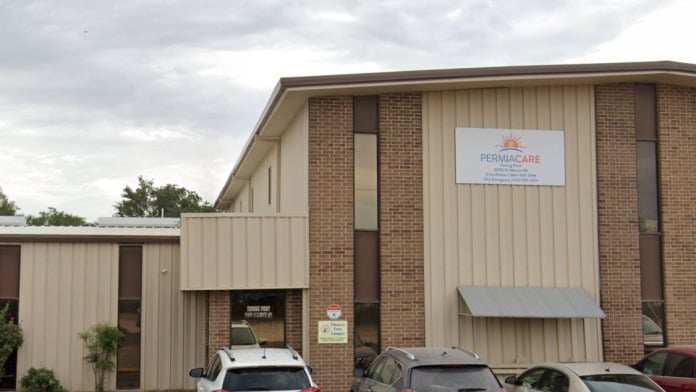
|
Odessa, TX | PermiaCare is an organization that provides behavioral health services in Odessa, Texas. Clients can receive mental health treatment and crisis intervention services. They can also refer individuals to their other Odessa facility that offers outpatient treatment for substance use disorder. Immediate Care During a Crisis Clients in need of immediate | Treatments Programs Payment Options | Llebo un año atendiendo a mi hijo y a sido la mejor atención, siempre atentos,la asistente luna muy profesional y atenta va a mi casa y siempre contesta mis mensajes
Marisel De la o
2 months ago
The youth counselors thier are amazing ,my children and I seeked counseling and they have gone to my kids schools etc.. I am very grateful
loveandpatron
3 years ago
I appreciate what you have done for my mother. She has committed on the front desk being a little short, but at times she can also be difficult. Please keep what you are doing for the public. Mental illness is a true struggle, not just for the patient but also for the family.
Erianna E
6 years ago
| 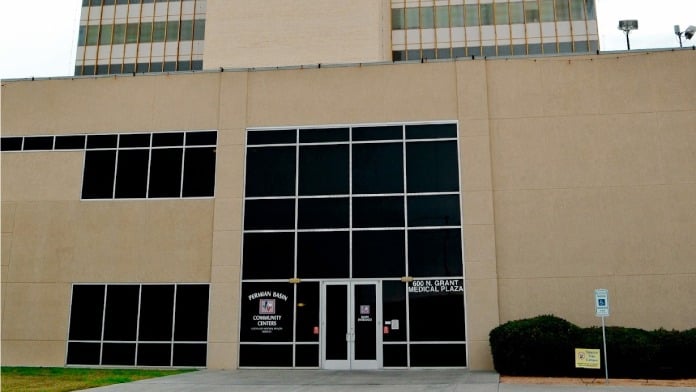
2 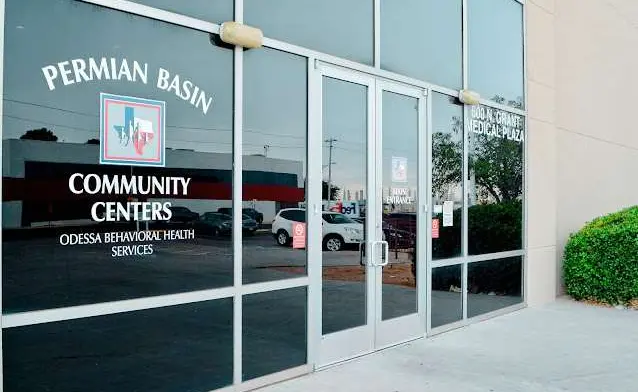
|
Odessa, TX | AA – Alcoholics Anonymous Suburban Group is a drug and alcohol treatment group in Odessa, Texas for adults who have an alcohol use disorder. They offer peer-to-peer group support meetings and local resources. Alcoholics Anonymous Suburban Group in Odessa, Texas, provides outpatient sobriety meetings, a 12 step fellowship and addiction treatment p | Treatments Programs Payment Options | It helped me
Christine Mendoza
2 years ago
Had a great experience at this group, the people are willing to help with any issues, questions, and problems you may have with your addiction. I will definitely make this my home group! Thanks suburban group for all of your help, and support!
Maranda Gonzalez
12 years ago
| |
Odessa, TX | West Texas Counseling and Rehabilitation Program is a rehab facility that's located in Odessa, Texas. They treat adults with opioid use disorder and also offer medically assisted treatment. They take private insurance, Medicare and Medicaid. This is a licensed medical detox clinic. Clients may walk in and sign up for treatment the same day. You mus | Treatments Programs Payment Options | If you know you know LOL!! I just don't understand why this office doesn't have much parking spaces and you will get towed ASAP
Bekk
1 year ago
Great program, with genuinely compassionate ⚕️ staff!
Vida Bonilla
4 years ago
Great nice people very helpful always wanting to help u bout ur day good counselor's
Chris MASTERCHIEFALOT
7 years ago
| 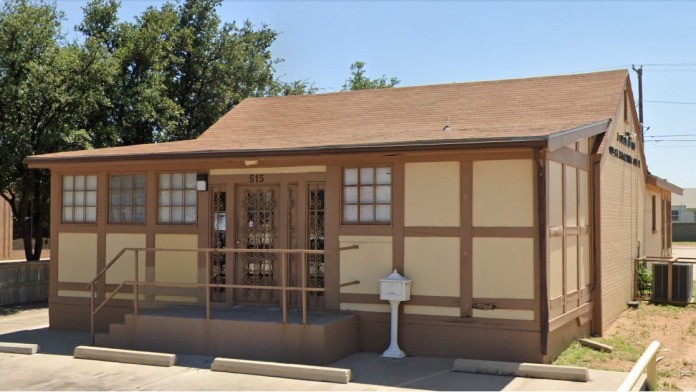
|
Odessa, TX | Clover House’s Men’s Clover House in Odessa, Texas offers inpatient and outpatient treatment services to address substance use disorders. Program services help to maximize your successful reentry and reintegration into the community after completing primary treatment. The men's residential services program includes supportive residential and in | Treatments Programs Payment Options | I am Grateful to have a facility like this in our community that offers quality services and second chances. These programs allow offenders a fresh opportunity to become productive members of society. My husband was gifted a chance to go through Jackson facility 8 years ago after spending one year at SAFP. He is now a law abiding citizen and has 10 years of sobriety. He helps many others in recovery and still thanks God everyday for people and places like this in which he would not be where he is without Cloverhouse and their mission. Bottom line is ... if you are ready to change your ways then the instrument used to assist you can’t do it wrong. But... if you are not willing to change your ways, no place and no person will ever do it right in your eyes. Perhaps rating our own level of willingness is the appropriate measure to use.
Jennifer Barton
7 years ago
| 
|
Odessa, TX | Clover House Women’s Center Clover House Women’s Center is a nonprofit residential rehab in Odessa, Texas. They welcome voluntary and court ordered women battling addiction. As their most in depth care option, you’ll have access to ongoing support as you live on campus. Clover House in Odessa, Texas has been helping people since 1969 and t | Treatments Programs Payment Options | Clover House Women’s Center has no reviews yet. Leave a review.
| |
Odessa, TX | Freedom House Discipleship is a non-profit rehab located in Odessa, TX. Freedom House Discipleship is an intense Twelve-Month program that is designed to help individuals who are just being released from prison/jail and those struggling with addiction. Freedom House Discipleship’s sole purpose is to raise men to be true followers of Christ. They | Treatments Programs Payment Options | Freedom House Discipleship has no reviews yet. Leave a review.
| |
Odessa, TX | The relapse residential treatment program at Clover generally lasts 30 days. Services may include individual and group therapy, addiction education, and life skills training focused on topics that prevent relapse. For example, they may have classes in coping skills, emotional regulation, building healthy relationships, and more. When treatment end | Treatments Programs Payment Options | Clover House has no reviews yet. Leave a review.
| |
Odessa, TX | Outpatient care allows clients to live at home or in a sober living facility while receiving treatment, and they can often work or attend school full-time. The outpatient program uses the Matrix Curriculum and services may include assessments, individual and group counseling, peer programs, family services, and relapse prevention. Another key part | Treatments Programs Payment Options | Clover House, Inc has no reviews yet. Leave a review.
| 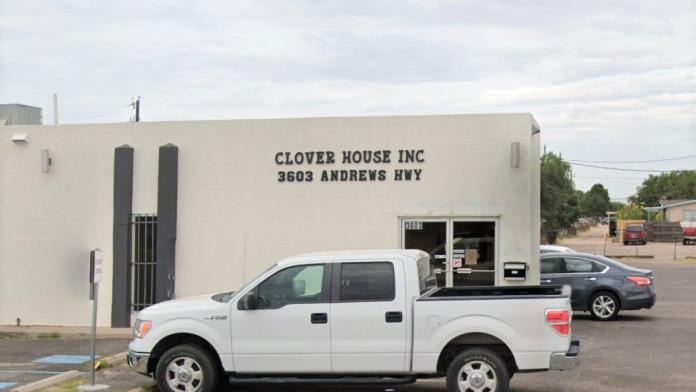
|
Big Spring, TX | The George H. O’Brien, Jr., Department of Veterans Affairs Medical Center is located in Big Spring, Texas. This hospital is the primary medical care facility operating under the VA West Texas Healthcare Network. You can come to this clinic for care if you live locally, or you might be referred here for specialized treatment from one of the other | Treatments Programs Payment Options | Great experience people were great
Steven Graves
4 years ago
| 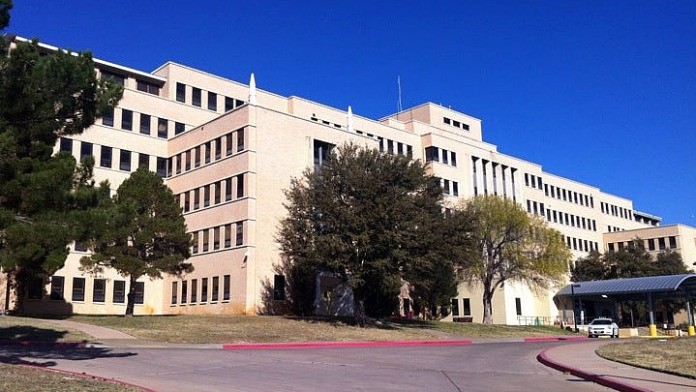
|
San Angelo, TX | River Crest Hospital is a psychiatric hospital in San Angelo, Texas. While the hospital treats a broad spectrum of mental health needs for kids and adults, they have a specialized drug and alcohol addiction program for adults. They’ve built this program as a detox and crisis stabilization center. What that means is that you’ll begin your recove | Treatments Programs Payment Options | 10/10 would go again
Abigail Rose
2 months ago
Best place ever.My daughter is 10 years old and she loved it.best staff that was really sweet and always let me talk to her.good thearpy.DEFINITELY RECOMMEND!!
Sloth Girl
1 year ago
Loved being there found the best experiences of my life.staff and residents like a big family Thank you Jesus. Wish there had not been such hustle and bustle with staff
They work so hard. Slow down please or change entrance for staff. We felt it! They work hard for us.
Rebecca Harris
1 year ago
| 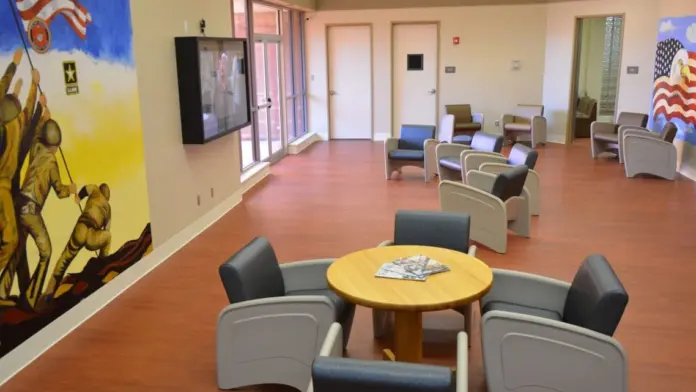
4 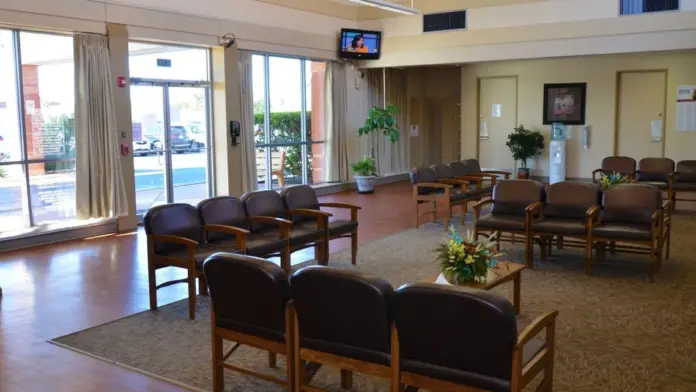
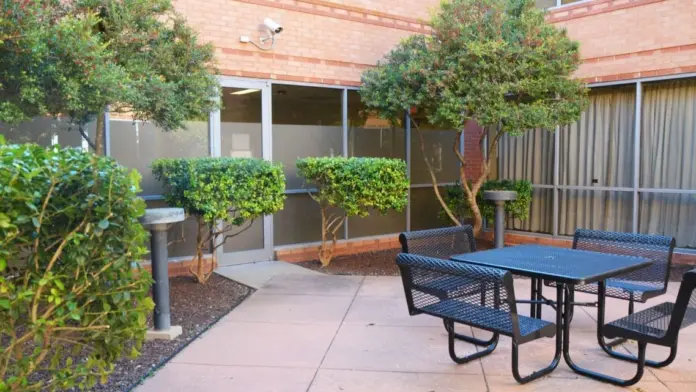
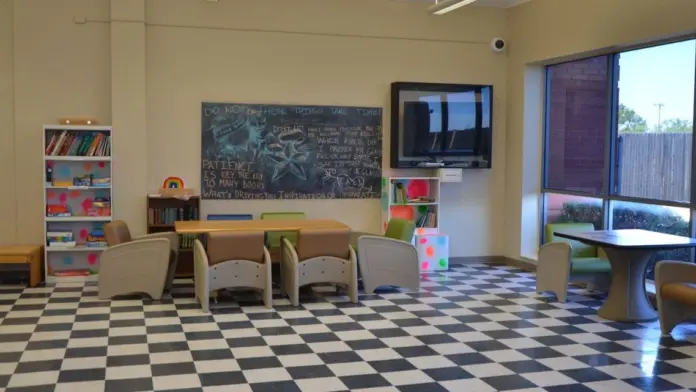
|
Hobbs, NM | Humphrey House is a residential treatment center for adolescents between the ages of 12 and 18 in Hobbs, New Mexico. The young people who participate in this program have been deemed unfit to live at home or in a foster home due to their mental or behavioral health disorders, which may include co-occurring conditions like addiction. Here, they can | Treatments Programs Payment Options | This place took me in and took care of me when my own family would not. I grew up here half of my teenage years till I was 18. They allowed me to get my GED and work 2 jobs (my choice to save money and keep busy and out of trouble) I am SO THANKFUL for Staff members that were here during that time RIP Ms. Bonnie, Lisa, Misty, Ernie, Nataly + more. Im 40 years old now and will never forget this place.
crystal morman
4 months ago
This place was very informative to me when others were not. Did not have a bad experience in the very short time I dealt with them. I was working with my daughter on stuff before the short stay there and the staff did everything they could to help finish what was started before she went for her short stay.
Ashley Mairot
1 year ago
Humphrey house is a place for the kids in our communtiy to go and be kept in their community and in the state. Families and youth have an opportunity to work together on their target goals together. Sometimes Humphrey House is often the better choice than the home for whatever reasons and that's just being honest. As always when looking at the whole picture you may not always get the answers and results you want but you get what you need. Humphrey house provides just that place that is needed even during the times it isn't wanted. It takes a village. And a village isn't perfect but they are willing to keep trying.
gloglo goree
1 year ago
| 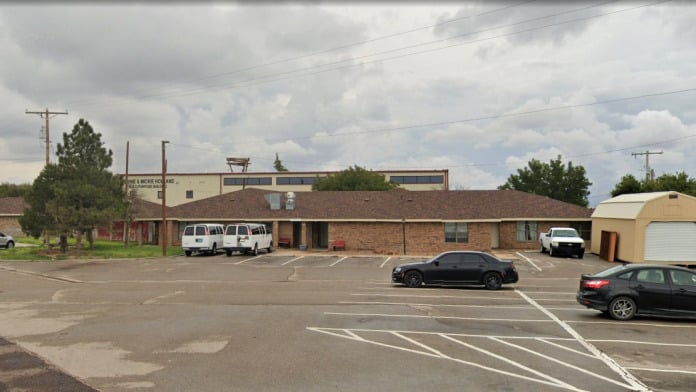
4 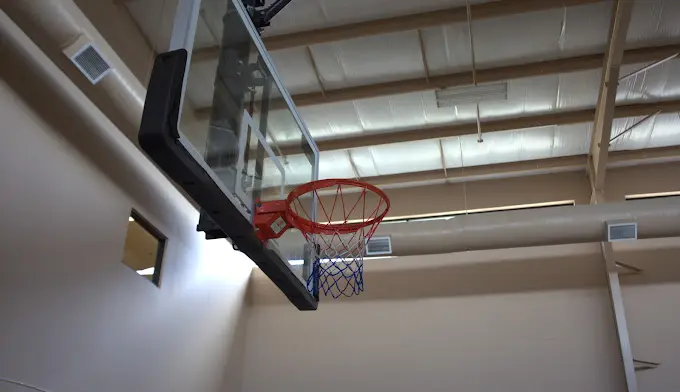
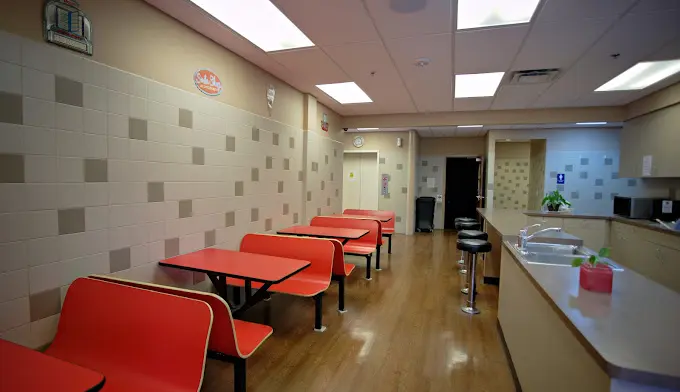
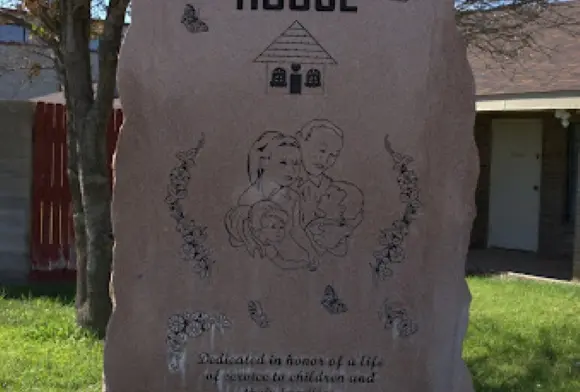
|
Hobbs, NM | Guiding Center of Lea County offers comprehensive addiction treatment services to adults and adolescents in Hobbs, New Mexico. Based on each person’s requirements and preferences, they provide a variety of flexible engagement options such as telehealth appointments, virtual sessions, and in-person visits. They base their offerings on critical s | Treatments Programs Payment Options | "An enthusiastic team of people led by an exceptional CEO"
Jefferson
1 year ago
Good place to have services with all types.
Fonda Jones
1 year ago
Excellent center for not only mental illness but addiction. Got me stabilized instead of pills with ups and downs.
Edward Dean
2 years ago
| 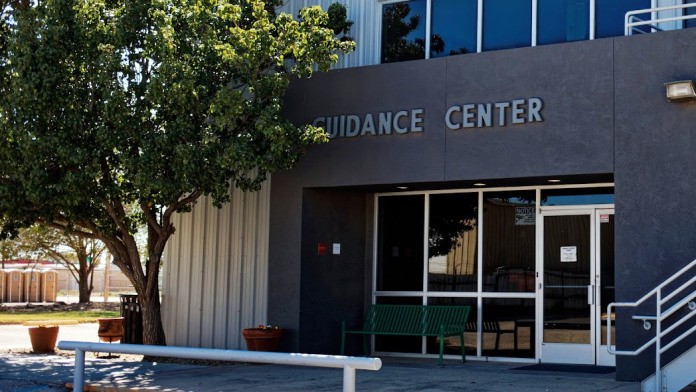
5 5 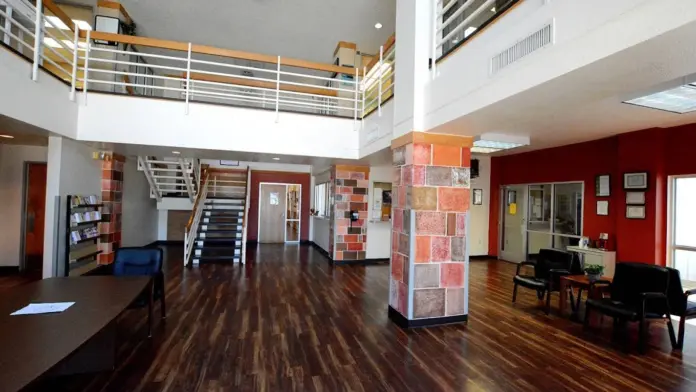
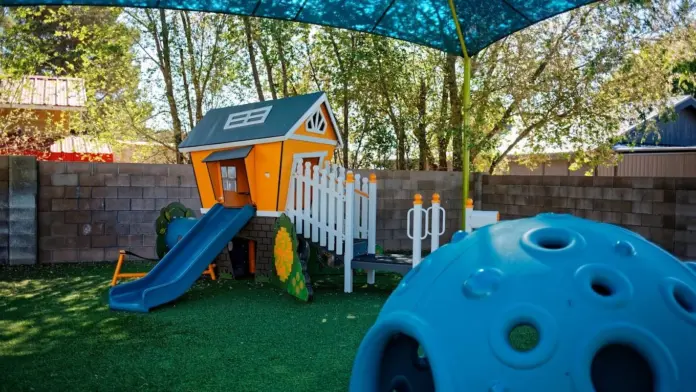
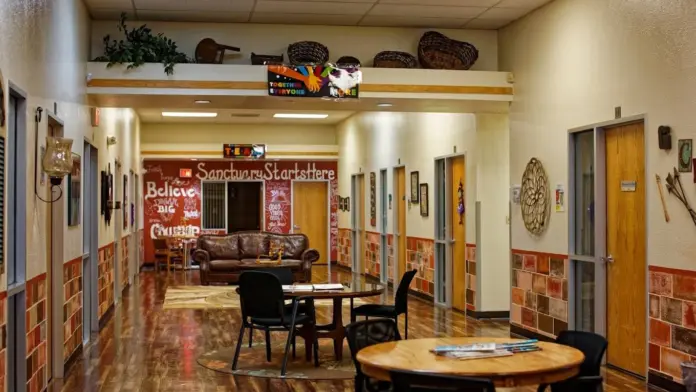
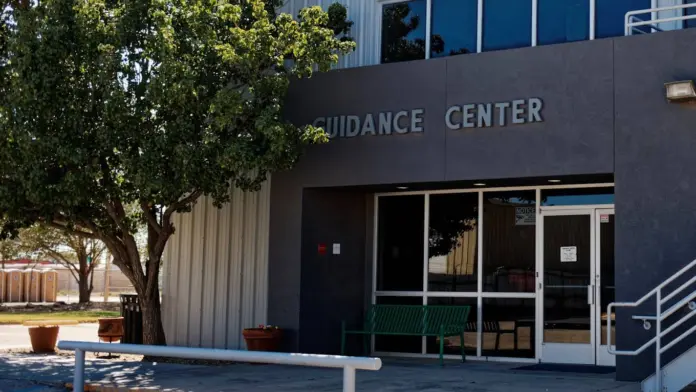
|
Kermit, TX | Based in Kermit, Texas, West Texas Centers is a private mental health and substance abuse treatment program. Their inpatient and outpatient services are available to teen and adult clients. They also provide specialized services to support people living with intellectual and developmental disabilities. Clients who participate in the inpatient progr | Treatments Programs Payment Options | West Texas Centers has no reviews yet. Leave a review.
| |
Monahans, TX | West Centers’s Ward County IDD site on North Main Street is a behavioral and developmental health center that provides drug rehab services to men, women, and young adults in Monahans, Texas. Clients include those who have been diagnosed with a co-occurring mental health condition. This center offers treatment through a comprehensive outpatient pr | Treatments Programs Payment Options | West Centers – North Main Street has no reviews yet. Leave a review.
| |
Monahans, TX | West Texas Centers are located at different locations throughout Texas. They focus on mental and behavioral healthcare for adults . At their location in Monahans, they also offer a substance abuse outpatient program. Charges for services will be determined on an individual's ability to pay. Medicaid and Medicare are accepted. Here, comprehensive as | Treatments Payment Options | West Texas Centers Ward County has no reviews yet. Leave a review.
| |
Abilene, TX | Serenity House in Abilene, Texas, offers comprehensive addiction recovery services for adults, including medically supervised detox and inpatient, outpatient, and aftercare services. They also specialize in dual diagnosis care, young adult programs, and youth prevention. Primary treatment modalities combine individual, group, and family counseling | Treatments Programs Payment Options | Heard about this place I need help I don't have insurance and I'm at my lowest my buddie recommended y'all how do I start?
Chandler Andersen
5 months ago
THANK YOU FOR HELPING MY DAUGHTER IN SO MANY AMAZING WAYS!
ACM Miller
10 months ago
Y'all really work miracles there I'm truly grateful for the serenity house thank you so much!!!!
Keesta Sawyer
1 year ago
| 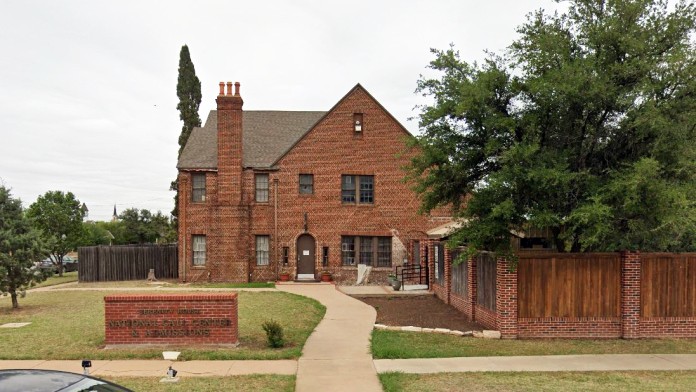
6 6 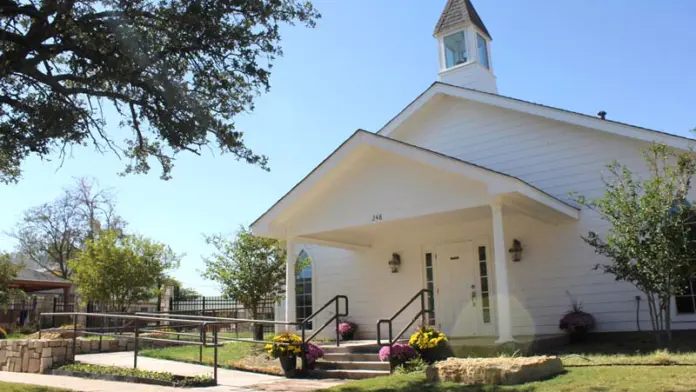
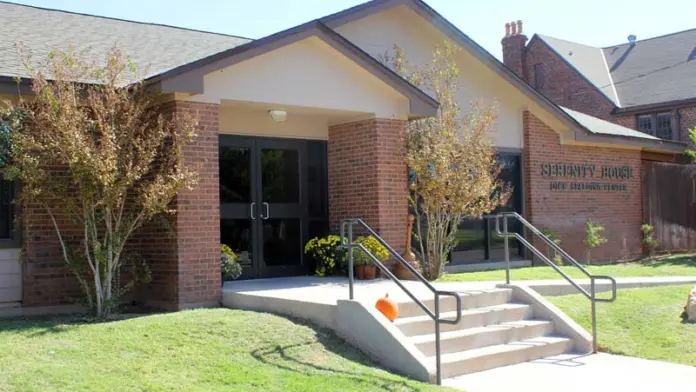
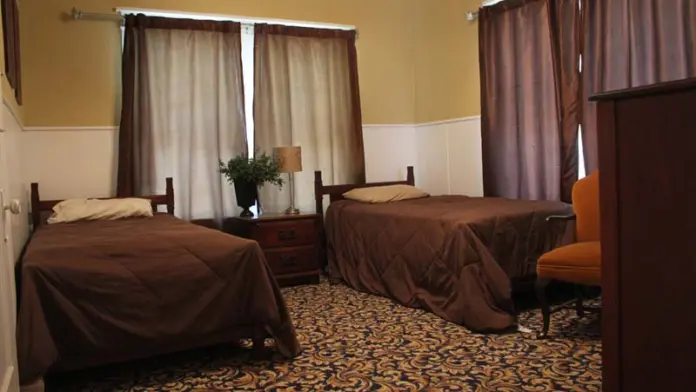
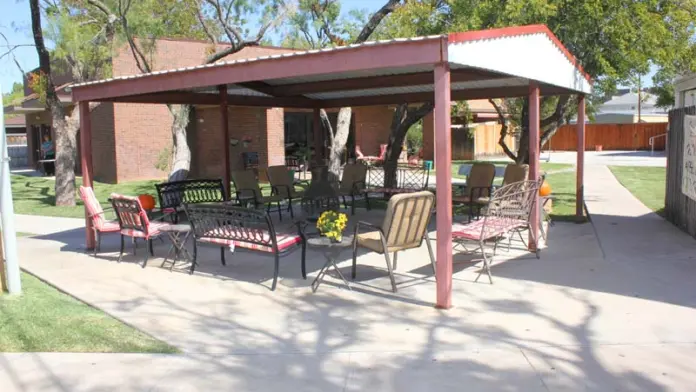
|
Lubbock, TX | The Ranch at Dove Tree – Quinlan St provides comprehensive care in Lubbock, Texas. You can participate in continuous addiction and co-occurring disorder care with medical detox, inpatient rehab, day-treatment programs, intensive outpatient programs, outpatient care, and aftercare. They have a specialized recovery program for first responders and | Treatments Programs Payment Options | I went to dove tree, in Lubbock, Tx broken and very lost. Mentally, emotionally, and physically lost. They helped me get back on my feet again and have helped me gain more confidence in myself. There’s a lot of the staff that I’m very grateful for, but Josh Toney and Lex helped me out so much. I finally feel as though I’m finding myself again, and have been able to finally find my course in life and what I’m supposed to be doing. I give thanks to these two and am so very grateful for them.
James Webb
2 months ago
I love the ranch I had been there twice and it saved my life I meet some of the best people that I ever had in my life there there will always be that love that I have when I remember the staff the fun the peers it’s the best rehab in Texas love you all
Carlos Vara
3 months ago
Really great place the staff is above awesome the treatment and program is the same it's comfortable they do care and will help you to get the help you need or want even after you complete the program it's fun and exciting there's so much great things to say about the ranch at Dove tree it has changed my life it will change yours
Michael
3 months ago
| 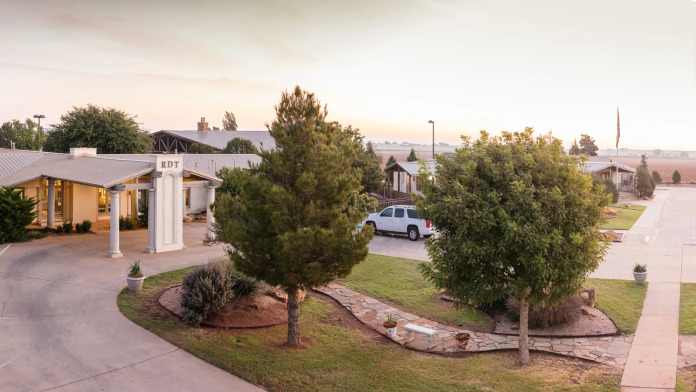
6 6 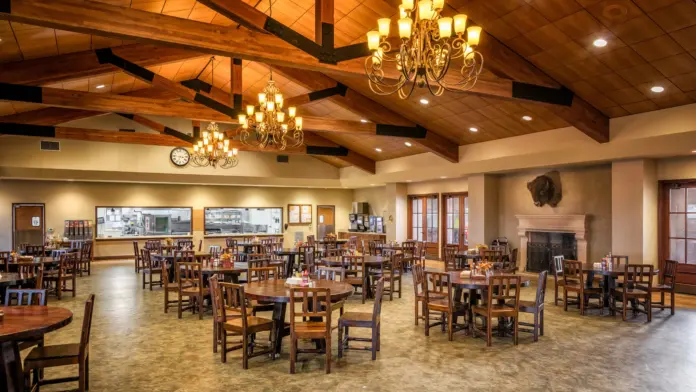

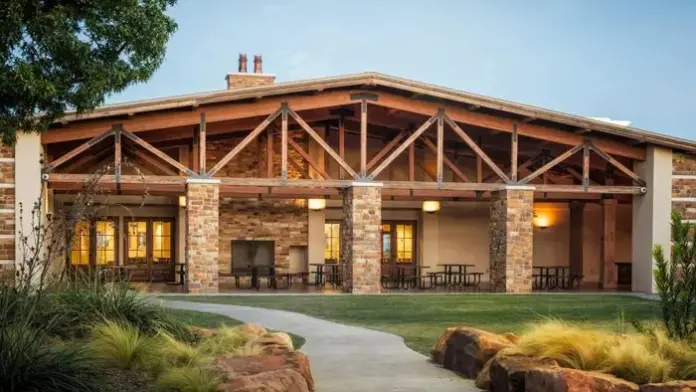
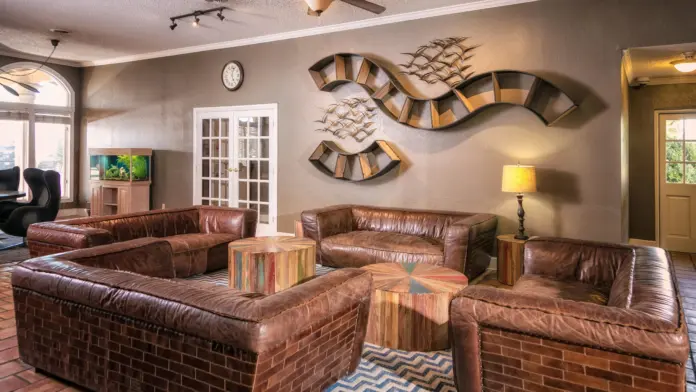
|
San Angelo, TX | ADACCV Alcohol and Drug Abuse Council for the Concho Valley, located in San Angelo, Texas, offers alcohol and drug rehab treatment to adults aged 18 and older. Their levels of care include residential treatment, detox, sober living, and outpatient services. The residential treatment center is a 72-bed detox facility that usually starts treatment w | Treatments Programs Payment Options | It was a great place to get help in recovery. The food was great more than enough to eat. All staff was great. Love everyone thanks for everything. I'm still clean and sober 80 days and counting. God bless you
John
2 months ago
Where do I even begin, as being a said “young buck” I’ve got to say I’ve been through the wringer of life. But I was ready for a change, and ADACCV helped me get my head on shoulders in order to take the steps for when returning to the “real world”. The food is beyond fantastic, the staff is catering to all and any needs, and the program; from what I’ve seen; can catch any addicts attention. If you are in need of help, please reach out to ADACCV!♥️
John Johnston
3 months ago
My name is Brandon L. Phillips.I had been through 4 previous rehabs with a still ongoing heavy cocaine addiction that had landed me on the streets and dumpster diving and stealing to support my habit. I was previously a prominent oilfield business owner of String-Up Trucks Inc. At one time I had it all...what I had become upon entry to JOURNEY RECOVERY CENTER WAS A SPIRITUALLY AND MENTALLY DEAD SOUL, 127 lbs. , FIGHTING TO SAVE MY PHYSICAL LIFE. WELCOMED INTO A CLEAN AND RESPECTFUL RECOVERY ENVIRONMENT, I WAS WELCOMED WITH UNDERSTANDING AND OPEN ARMS TO ALL THE STAFF. MEMBERS INCLUDED COUNSELORS TANISHA, JAMES, SONIA, CASE WORKER BONNIE😁 AND OTHER STAFF KEVIN, MIKE,..EVEN KITCHEN STAFF AND CEO ERIC WERE THERE TO BUILD US UP. AND THE INFAMOUS LEROY...A MAN YOU CANT HELP BUT CROSS PATHS WITH, WERE ALL AN INSPIRATION AND SUPPORTIVE THROUGHOUT THE RECOVERY PROCESS.
SOMETHING STUCK TRUE AND FIRM..I AM TRULY GRATEFUL FOR THE LECTURES, CLASSES, PARTICIPATION, MEETINGS, AND LOVING ENVIRONMENT THAT HAS BROUGHT ME BACK FROM A TRULY HOPELESS STATE OF MIND, BODY AND SPIRIT. I AM 172 LBS TODAY AND OF SANE MIND AND TOOK THE SUGGESTIONS OF STAFF AND SPONSOR TO ENTER AND LIVE AT A SOBER LIVING FACILITY. LUCKLY BEING REINSTATED ON PROBATION AND MISSING A PRISON TERM, I MUST REMAIN IN ECTOR COUNTY FOR A TIME PERIOD UNKNOWN. MY HEART AND PASSION BELONGS TO JOURNEY RECOVERY CENTER AND THE RECOVERY COMMUNITY OF SAN ANGELO. A SPECIAL THANKS TO A FRIEND FOREVER JOEY AND MY SPONSOR NAMED JUSTION.IM IN JOYOUS TEARS THAT I AM YET ANOTHER MIRACLE ...A CLEAN ADDICT. MY CONCIOUS CONTACT WITH GOD IS BACK, MY HEALTH IS BEING SLOWLY RESTORED, AND JUST FOR TODAY.." I WILL BE UNAFRAID, MY THOUGHTS WILL BE ON MY NEW ASSOCIATIONS, PEOPLE WHO ARE NOT USING AND WHO HAVE FOUND A NEW WAY OF LIFE. SO LONG AS I FOLLOW THAT WAY, I HAVE NOTHING TO FEAR.
I STILL HAVE ALL MY MARBLES INTACT...LEARN WHAT THIS MEANS BY BECOME AN ALUMNI IN RECOVERY BY GRADUATING FROM A RECOVERY CENTER THAT WILL CHANGE THE DIRECTION YOUR LIFE IS HEADED. WALK IN FAITH..NOT FEAR AND SEE WHAT MANIFESTS FOR YOU. GOD BLESS THOSE STILL SUFFERING IN ADDICTION!!!
LOVE,
BRANDON LEE PHILLIPS
Brandon Phillips
3 months ago
| 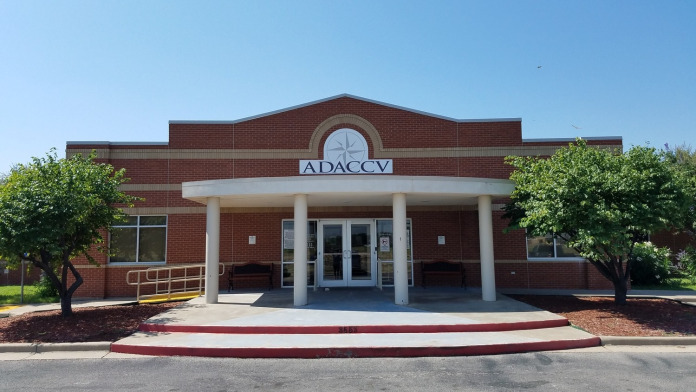
|

Texas is ranked 18th nationwide in terms of addiction treatment affordability, with an average cost of addiction treatment of $56,623.
The costs of drug and alcohol rehab in Texas vary widely and depend on several factors, including:
The costs of addiction treatment listed for cities and states are averages based on the cost of the treatment types listed above. These averages are high due to the cost of medical detoxification and residential inpatient rehab programs.
These numbers also reflect the raw cost of drug rehab, before any insurance coverage. The typical individual seeking addiction treatment can expect to pay much less for outpatient or intensive outpatient services than the averages listed below.
There are many ways to pay for drug rehab in Texas. Most treatment centers accept cash or self-payment, as well as private health insurance. However, there are many treatment centers in Texas that accept Medicaid and Medicare, or offer sliding scale payments or other low-cost payment options. Here’s the complete breakdown of how to pay for addiction treatment in Texas.
Blue Cross Blue Shield is the most widely-accepted insurance for drug rehabs in Texas, with 281 treatment centers in the state accepting their insurance. Aetna is the 2nd most popular with 277 treatment centers accepting it followed by Cigna in 3rd accepted by 260 drug rehabs.
Texas is ranked 43rd nationwide in drug rehab admissions, with 130 rehab admissions per 100,000 population in 2023, which is significantly lower than than the U.S. national average of 621 admissions per 100,000.
The following are the number of Texas rehab admissions in 2023 for each of the 6 most frequently used drug classes, as well as the relative percent for each type of drug.
Source: Substance Abuse and Mental Health Services Administration. National survey of substance abuse treatment services (N-SSATS).
Texas is ranked 43rd nationwide in terms of annual drug overdoses, with an average of 17.9 overdoses per 100,000 population and a total of 5,560 overdoses in 2023. Opioid abuse accounted for 55% of all drug overdoses in Texas, with a total of 3,036 opioid overdoses in 2024.
Centers for Disease Control and Prevention. Provisional drug overdose death counts. U.S. Department of Health and Human Services.
Texas is ranked 22nd for drug and narcotics-related violations, with an estimated 453 narcotics citations per 100,000 population which is higher than the National Average of 421.
All values are per 100,000 population.
Federal Bureau of Investigation. Crime data explorer: Crime trends. U.S. Department of Justice.
Texas has the 33rd highest rate of drunk driving in the nation, with a total of 191 DUI arrests per 100,000 people in 2023 (and 58,260 total DUI arrests).
All values are per 100,000 population.
SafeHome.org. DUI statistics and trends.